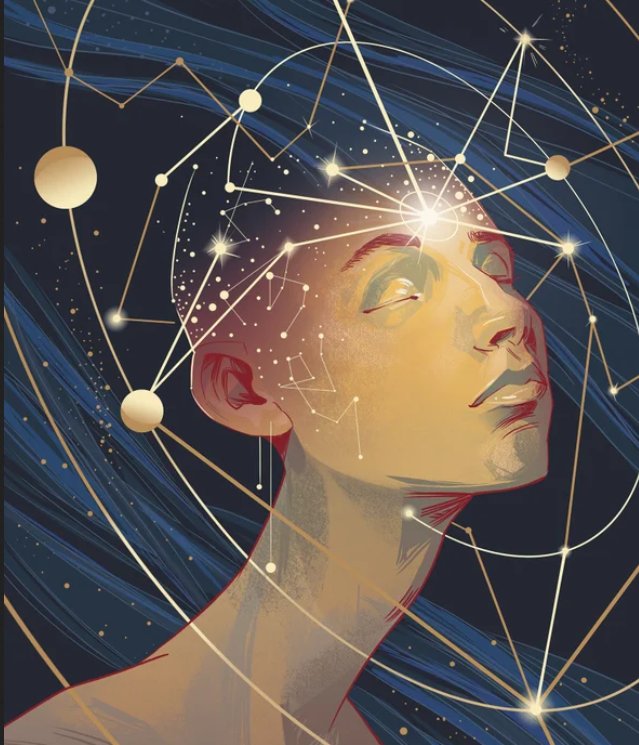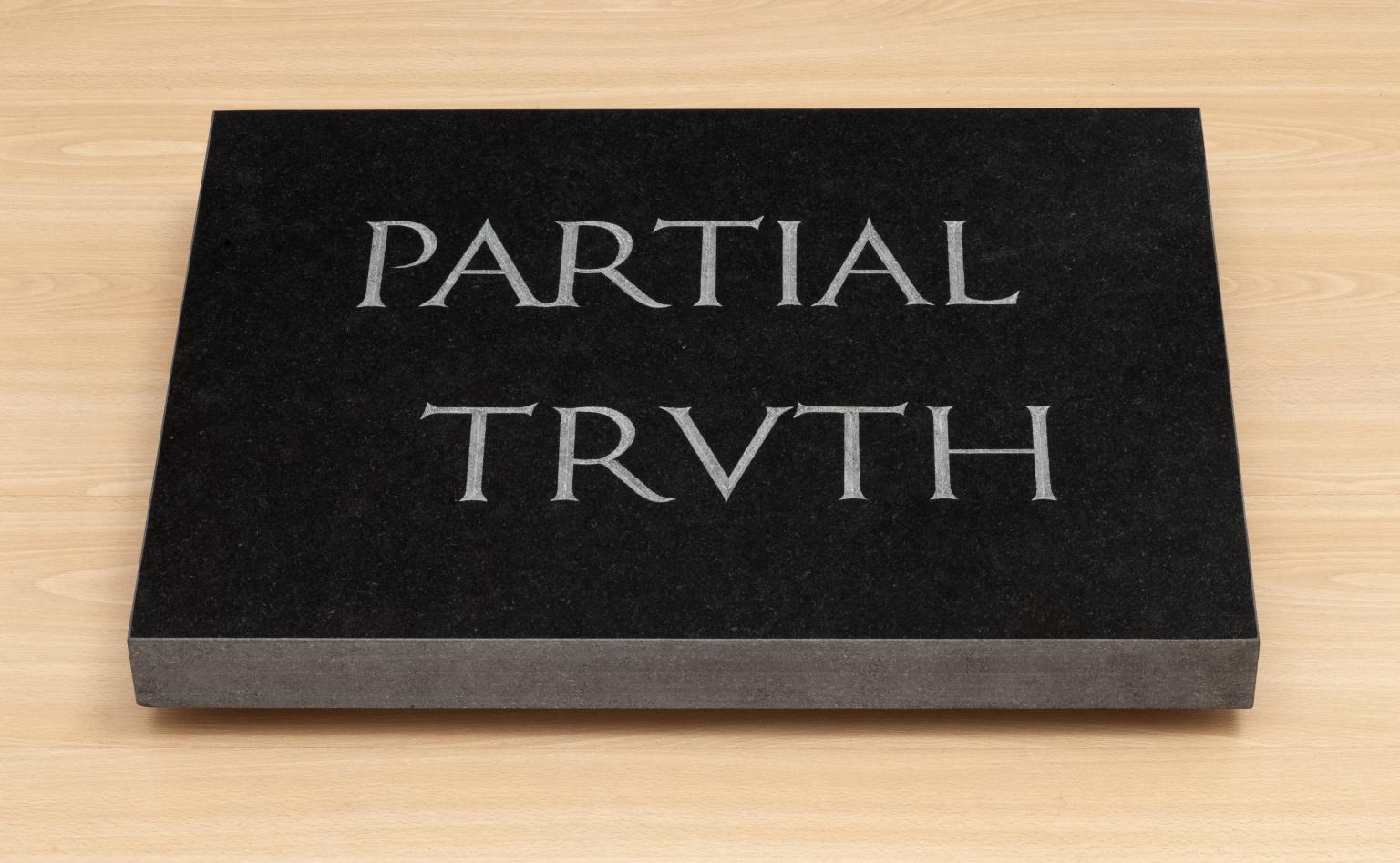What Is Truth
How To Tell A Partial Truth From The Whole Truth?
What Is Truth?
How the truth and nothing but the truth is often not the whole truth.
Aunty Flo
My great aunty Flo broke her arm and died.
It is true that she broke her arm in 1923. It is also true that she died in 1949. But there is no cause and effect relationship between these 2 events. The only connection between these events is that they appear in the same sentence.
That is a simple illustration of how the acccurate and honest reporting of two truths is not the whole truth.
Britain's involvement in the slave trade Now let's look at a more complex and current example. [1] Great
Britain was heavily involved in the slave trade in the 17th and 18th
Centuries and British traders were responsible for the exporting of 3.2 million African
slaves between 1660 and 1807. [2] The industrial expansion of that
period benefited from the profits from that trade and thus modern
Britain is the direct beneficiary of this trade. [3] The endemic and
systemic anti-black racism in contemporary British society is the
result of the "white supremacism" used to justify the enslavement of
blacks in that period. [4] White British people need to understand
their racial colonisalist history, apologise for it, make reparation
through a process of cultural decolonisation and in some situations via
financial reparation. This is a very brief summary of the truths and position of "Black Lives Matter", "Rhodes Must Fall" and many others who embrace and espouse the current historical revisionism we are experiencing in the UK at time of writing. Before we go any further let me place on record that in my view slavery of any people anywhere, at any time from the past to the present is abhorrent and a crime against humanity. Similarly, racism in all its shapes and forms, and however prevalent in UK society or any other country or culture, is totally unacceptable. The statements in points one and two above are facts and therefore true. The extrapolations, and beliefs based on those extrapolations, expressed in points three and four above are opinions and do not reflect the whole truth. It's beyond the scope of this article to provide detailed analysis of the history of British involvement in the slave trade, but suffice it to say that:
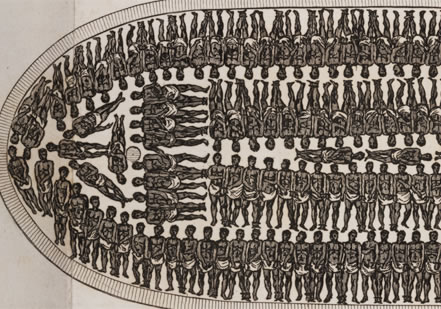
___________
Orientation Note
This article does not attempt to define truth, prescribe beliefs, or assert philosophical authority.
Its purpose is to equip the reader with practical epistemic tools for navigating claims, uncertainty, and competing assertions in a world saturated with information and confidence.
Truth, in this context, is treated as something approached through testing, revision, and humility - not possessed or declared.
The aim here is not to tell you what to believe, but to strengthen your capacity to evaluate claims, question certainty, and decide responsibly for yourself.
What Is Truth And What Is A Partial Truth?
A partial truth is a fact that is true but is a fragment of the whole truth.
3 reasons why the whole truth is often not told
- Laziness. We love to jump to conclusions and are hardwired to apply heuristics, make assumptions and misunderstand or ignore the difference between corelation and causation.
- Access. We don't always have access to all the facts and thus we build a narrative that fits the known facts.
- Belief. We construct a theory or a belief which over time becomes subject to confirmation bias and we neither see nor include information that does not support our position.
Why does all this matter?
One of the key themes of this site is about learning how to think effectively, and this matters because, over the long term, the outcomes that you experience throughout your life are determined by two critical factors:
- How you respond to the events in your life.
- How you respond to the influences that you are exposed to thoughout your life.
These influences include: your upbringing, the political environment you live in, popular culture, mainstream media, social media and the prevailing ideologies.
Many of the things that happen in your life are random and beyond your control.
- But, you can control how you choose to respond to these events - it is a choice.
Many of the influences to which you are exposed fall into the category of partial truths masquerading as the whole truth. Obviously you can't control these influences.
- But, you can also control how you choose to respond to these influences - it is a choice.
- In order to be able to do this you need to have the mental tools and resources to be able to exercise good judgement.
- I have set out below a checklist to help you determine the true nature of the influences to which you are exposed.
The long term cumulative and compounding impact of your choices can have a major effect on your health, wealth and happiness.
What Is Truth - How To Tell A Partial Truth From The Whole Truth?
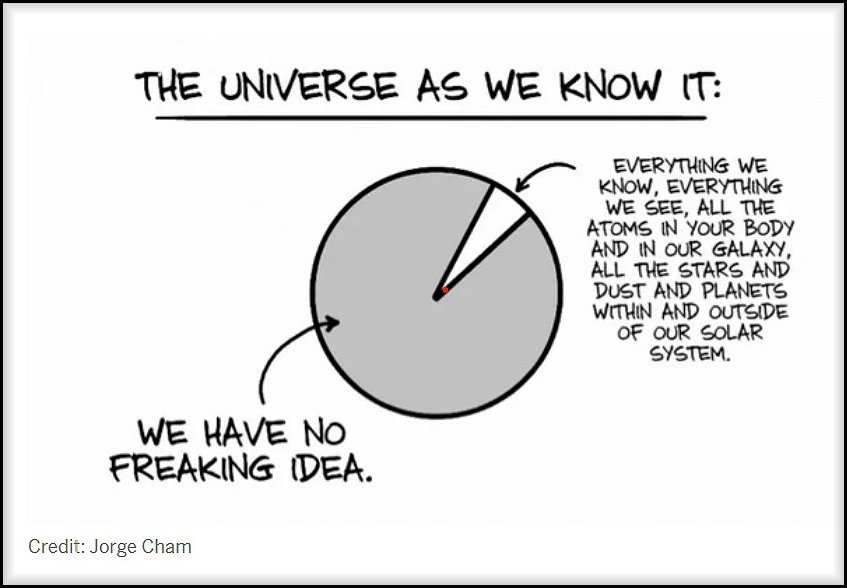
How do we establish what is truth? How do we know whether an idea, a theory or a belief [or in fact anything] that is presented as the truth really is the whole truth rather than a partial truth masquerading as the whole truth?
I have set out below a checklist which you can apply to see whether you are dealing with the whole known truth or a partial truth masquerading as the whole truth.
But first I want to set out the context and background to that checklist.
Please note: When I use the phrase "the whole truth" I am referring to "the whole known truth" at any particular point in time, which may superceded with future discoveries.
Karl Popper: The Line Between Science and Pseudoscience
The scientific philosopher Sir Karl Popper (1902-1994), was interested in the same problem and offered a solution. He was considering this in relation to science and what he referred to as "pseudo-science", but the principles he outlined apply to our challenge and we can equate science as the whole truth and pseudo-science as partial truth.
In the early 20th century a number of new and exciting theories were all the rage and this was at the same time that Albert Einstein was setting out his theory of relativity.
He became concerned that Marxism and Freud and Adler's psychological theories did not meet the same standard of proof as Einstein's theory of relativity. In Popper's own words:
"It was during the summer of 1919 that I began to feel more and more dissatisfied with these three theories–the Marxist theory of history, psychoanalysis, and individual psychology; and I began to feel dubious about their claims to scientific status. My problem perhaps first took the simple form, ‘What is wrong with Marxism, psycho-analysis, and individual psychology? Why are they so different from physical theories, from Newton’s theory, and especially from the theory of relativity?’ I found that those of my friends who were admirers of Marx, Freud, and Adler, were impressed by a number of points common to these theories, and especially by their apparent explanatory power. These theories appeared to be able to explain practically everything that happened within the fields to which they referred. The study of any of them seemed to have the effect of an intellectual conversion or revelation, opening your eyes to a new truth hidden from those not yet initiated. Once your eyes were thus opened you saw confirming instances everywhere: the world was full of verifications of the theory. Whatever happened always confirmed it. Thus its truth appeared manifest; and unbelievers were clearly people who did not want to see the manifest truth; who refused to see it, either because it was against their class interest, or because of their repressions which were still ‘un-analysed’ and crying aloud for treatment."
Popper's Line Of Demarcation
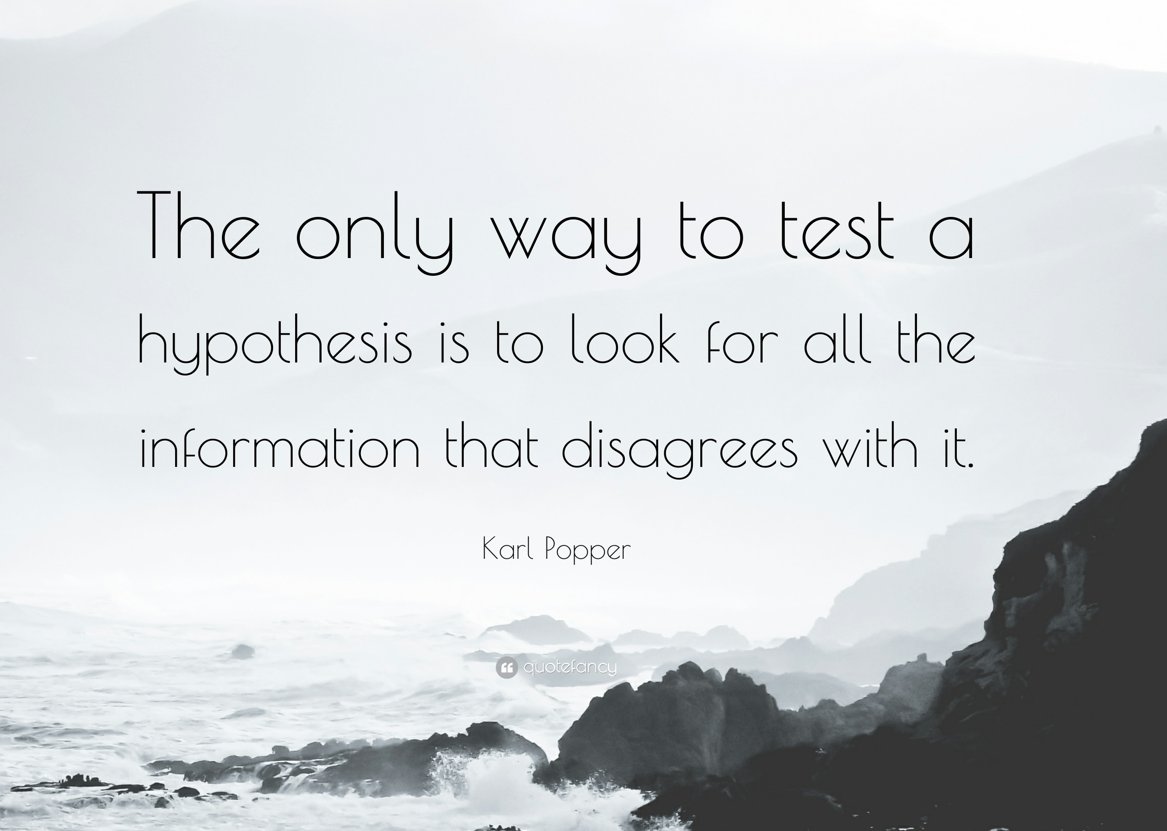
The justification for the theories of Marx, Freud and Adler were based on logical empiricism which can be summarised by saying that if we find enough supporting evidence for a theory that verifies it.
Popper compared and contrasted these theories against Einstein's Theory of Relativity, which made specific, verifiable predictions, giving the conditions under which the predictions could be shown false.
In other words, Einstein subjected his theory to scientific method, and as we now know:
Einstein’s predictions were proved to be true when tested.
One of Einstein’s crucial predictions was that light’s path would be bent by strong gravitational fields, and during an eclipse one would be able to measure the precise degree of curvature for light coming from stars located behind the solar disk.
Astronomers Arthur Eddington and Frank Dyson conducted a study of the solar eclipse of May 29, 1919, which provided the key insight. The measured curvature more closely aligned with Einstein’s theory than the predictions of classic Newtonian gravity thus verifying the theory through attempts to falsify it.
What is truth? Popper's conclusions
- Popper concluded that the non-scientific theories [partial truth] were not testable in any legitimate way.
- There was no possible objection that could be raised which would show the theory to be wrong.
- Popper also concluded that the line of demarcation between genuine science [the whole truth] and pseudo-science [partial truth] is testability.
- Testability means that you can make a future testable prediction which if it does not happen refutes or falsifies the theory and if it does happen it proves the theory to be the whole known truth.
Please note: I am well aware of the various criticisms of Popper's demarcation criteria in the field of science. But for purposes of establishing a working model for differentiating partial truth from the whole truth it stands until superceded by a better one!
Further Reading:
Karl Popper: The Line Between Science and Pseudoscience
Confirmation Bias - Seeing What You Want To See
Why You Should Embrace Anomalies – The Value Of Disconfirming Evidence
The Failure Of Cancel Culture - It's Suppression Not Engagement
Reframing History - Deconstruction And Discussion Not Destruction
Return from "What Is Truth" to: Mental Models - Help You Think Effectively
Or to: Walking The Talk
LATEST ARTICLES
The Inner Weight of Shame - Sustained By Attentional Fixation
 A Mind That Is Continuously Engaged In Self-Surveillance. Shame is one of the heaviest inner burdens a human being can carry. It does not announce itself loudly or demand attention through drama. Inst…
A Mind That Is Continuously Engaged In Self-Surveillance. Shame is one of the heaviest inner burdens a human being can carry. It does not announce itself loudly or demand attention through drama. Inst…Does Prayer Work? The Psychology of Prayer, Meditation and Outcomes
 Reality Is A Complex System Of Countless Interactions - Including Yours. So does prayer work? The problem is that the question itself is usually framed in a way that guarantees confusion. We tend to a…
Reality Is A Complex System Of Countless Interactions - Including Yours. So does prayer work? The problem is that the question itself is usually framed in a way that guarantees confusion. We tend to a…Living in Survival Mode Without Surrendering Mental Authority
Living in Survival Mode Without Surrendering Mental Authority
 Clear Thinking When You’re Just Trying to Stay Afloat. Many people today are overwhelmed because they are living in survival mode - not temporarily, but as a persistent condition of life. For many, th…
Clear Thinking When You’re Just Trying to Stay Afloat. Many people today are overwhelmed because they are living in survival mode - not temporarily, but as a persistent condition of life. For many, th…Manifestation Without Magic: A Practical Model
 Manifestation without magic is not a softer or more intellectual version of popular manifestation culture. It is a different model altogether. Popular manifestation teachings tend to frame reality as…
Manifestation without magic is not a softer or more intellectual version of popular manifestation culture. It is a different model altogether. Popular manifestation teachings tend to frame reality as…Staying Committed When You Can't See Progress - The Psychology of Grit
 Uncertainty Is Not The Absence Of Progress, Only The Absence Of Reassurance. One of the most destabilising experiences in modern life is not failure, but uncertainty and staying committed when you can…
Uncertainty Is Not The Absence Of Progress, Only The Absence Of Reassurance. One of the most destabilising experiences in modern life is not failure, but uncertainty and staying committed when you can…The Battle For Your Mind - How To Win Inner Freedom In A Digital Age Of Distraction
 From External Events to Inner Events. We often think of “events” as things that happen out there: the traffic jam, the rude comment, the delayed email reply. But what truly shapes our experience is wh…
From External Events to Inner Events. We often think of “events” as things that happen out there: the traffic jam, the rude comment, the delayed email reply. But what truly shapes our experience is wh…How to See Your Thoughts Without Becoming the Story
 A Practical Guide to Thought-Awareness. You can spend your life inside the stories of your mind without ever learning how to see your thoughts clearly and objectively. Most of the stuff we tell oursel…
A Practical Guide to Thought-Awareness. You can spend your life inside the stories of your mind without ever learning how to see your thoughts clearly and objectively. Most of the stuff we tell oursel…The Collison Decision Matrix - A Simple Framework for Better Choices
 The Collison Decision Matrix Is A Practical Everyday Thinking Tool. Most of us spend a surprising amount of time worrying about decisions. From small ones such as what to wear, what to eat, what to te…
The Collison Decision Matrix Is A Practical Everyday Thinking Tool. Most of us spend a surprising amount of time worrying about decisions. From small ones such as what to wear, what to eat, what to te…The Power Of Asking The Right Question
 The Power Of Asking The Right Question Lies In The Quest For Insight. To experience the power of asking the right question you must develop the practice of asking questions. The best way to improve th…
The Power Of Asking The Right Question Lies In The Quest For Insight. To experience the power of asking the right question you must develop the practice of asking questions. The best way to improve th…Site Pathways
 Here is a site pathway to help new readers of Zen-Tools navigate the material on this site. Each pathway is based around one of the many key themes covered on this site and contain a 150 word introduc…
Here is a site pathway to help new readers of Zen-Tools navigate the material on this site. Each pathway is based around one of the many key themes covered on this site and contain a 150 word introduc…How To Live With Contradiction - Beyond Thought Let Stillness Speak
 A major impact on so many peoples' lives is the situational contradiction of unfilled realistic expectations. So where does all this leave us? Well here we are, with mental equipment that is more lim…
A major impact on so many peoples' lives is the situational contradiction of unfilled realistic expectations. So where does all this leave us? Well here we are, with mental equipment that is more lim…
